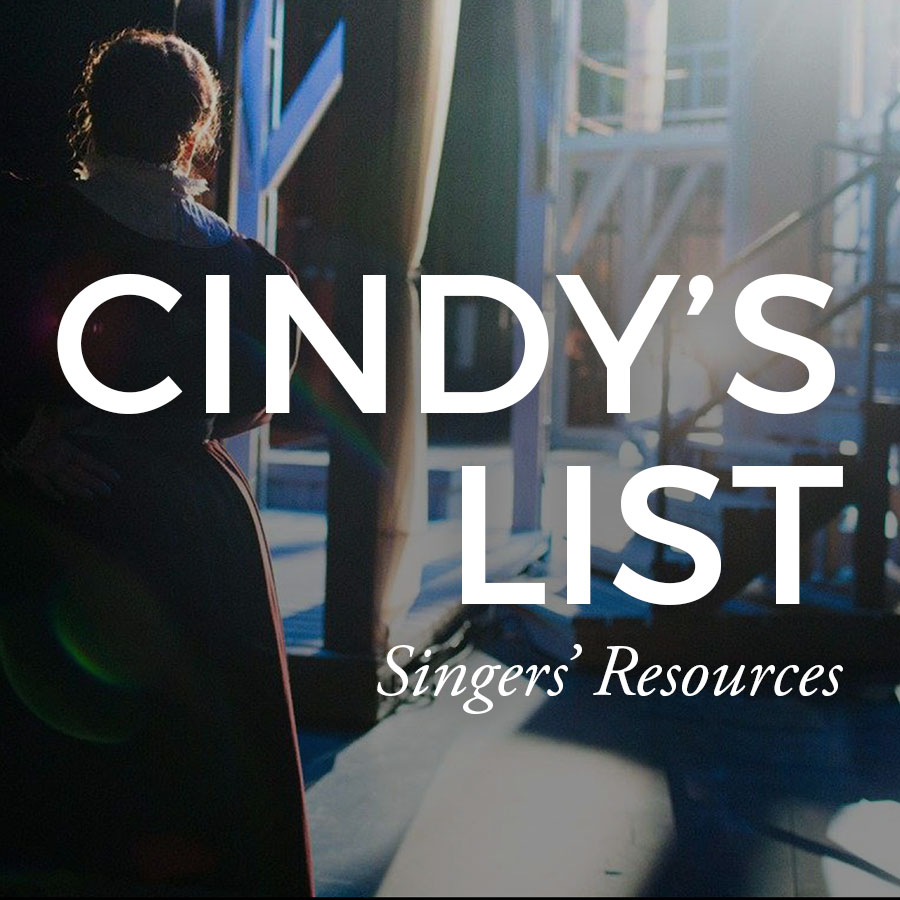**The following is submitted with love, and the tongue at least partially in cheek.**
Once upon a time, as a callow young apprentice in what was then called the Lyric Opera of Chicago Center for American Artists (now the Ryan Center), another mezzo and I were traveling by car with a soprano. This soprano was unhappy about having to sing Micaela in Carmen. She's kind of a milquetoast character; hard to make something out of her next to the firey gypsy leading lady. All she really gets to sing is a duet and one aria. There's SO MUCH TIME sitting around backstage. She just didn't have enough to DO in this opera. It was so FRUSTRATING.
That soprano was very lucky that we didn't pull over and dump her mutilated body in Lake Michigan, a fact of which we mezze were pleased to advise her. You see, although our lovely colleague meant well, she was blinded by Soprano Privilege.
I'll take your Micaela with its famous duet and aria and raise you Annina (La Traviata), Alice (Lucia di Lammermoor), Gertrude (Romeo et Juliette), or any of a dozen other standard mezzo roles any day. These are roles in which the only character evident is the one you invent, because the source material has been gutted to make more room for soprano and tenors to sing. These are roles in which, all told, you have maybe five minutes of actual music to sing, none of it particularly memorable, but must be on the stage doing bits of business frequently enough that you can't settle into your dressing room with a good book long enough to get comfortable. These are roles in which your main purpose in being there is to hand things to the soprano, follow her around adoringly, and validate her bad life choices.
This is, in short, a Che Dice role.
"Che dice?", for the civilians out there, is Italian for "What does he say?". It represents the spirit of most of your lines in this Fach. If you have any solo lines at all, they are usually interpolations into the soprano's big aria about how wonderful the tenor is, and they're there to give her a chance to breathe between the aria and the cabaletta. And they are usually some form of "Che dice poi, Signora?" What did he say then, my lady?
You may be a Che Dice mezzo if:
- you're playing a nurse, maid, slave, or companion of any type
- your costume is orangey-brown, black, or gray and its accessories consist of an apron and/or headgear that covers your hair
- you're made up to look several years older than the soprano, even though you're younger than her in real life
- your nonsinging vs singing ratio is approximately 90:1
- if you sing anything other than an interpolation in the soprano's aria, it's a "filler" line in an ensemble, consisting of mostly the same note, in a vocal range unlikely to be heard over the soprano and tenor's soaring lines; or else it simply doubles the chorus
- If by some miracle you do have an additional solo line, it will concern one of the following:
*the terrible choice the soprano is about to make
*the fact that you will deliver the letter/sneak her out of the house/lie to your employer on her behalf/stand by her forever despite the fact that she is making a terrible choice which will end badly for everyone involved, including you
*how sorry you are that the soprano made a terrible choice which has probably resulted in her death and disgrace, and your corresponding lack of employment
- the majority of your stage time not involved in handling props or listening to the soprano talk about her unsuitable boyfriend is spent gazing adoringly at her while other people talk about how wonderful she is
- if the tenor notices you at all or has any contact with you on stage, it's to give you an order
- Props. Lots and lots of props. You are the onstage props mistress.
Now, don't get me wrong. Che Dice roles may not be glamourous, but they can be quite beneficial. First, they're great "foot in the door" roles for young singers who can pull them off (in fact, every mezzo is a Che Dice mezzo at some point in her development). Second, they're lucrative. Third, if you are a good actor and have a director who realizes this and is happy to let you play, you can actually make a pretty big splash and prove that there's no such thing as a small role, while adding some nice color to the production. A good Che Dice singer doesn't get much recognition from the general public, but is valued by colleagues who know what's what. And if you get reviewed for your performance in a Che Dice role, you know you've really done well.
As for Soprano Privilege ... well, I suppose we really can't blame our high-flying colleagues. There's no such thing as a soprano Che Dice role; so how would they know? ;)









